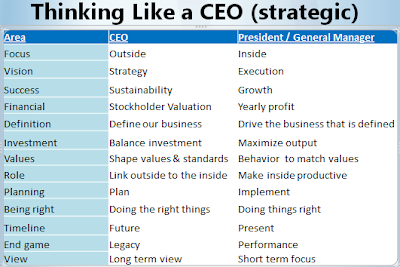Leadership is required to have ongoing success. People don’t “just get it” by some sort of osmosis. They need, and quite frankly, want to be led. The problem with leadership is not so much the followers as it is those who are supposed to be the leaders. Owning a business is more than just filing the needed paperwork. It doesn’t make you a leader any more than just giving birth makes a woman a good mother. Leadership requires focus and hard work. It means we have to invest in ourselves – now that is a new concept for many – because we have to be able to grow if we want to lead our company.
The Law of the Lid
John Maxwell talks about the “Law of the Lid” which unfortunately describes the place many small businesses are today. This law says that you can’t lead your company beyond your personal leadership level. The company can’t pass you up. You are the lid – and if you are not continually investing in yourself and growing in your leadership and management skills – your company will get stuck and not be able to continue moving forward. Often owners want to blame their staff for these periods of stagnation when they need to look in the mirror and realize the problem starts with themselves.
Level 5 Leadership
One of the best descriptions of the way leadership growth occurs comes from the 5 levels of leadership. Most of us in IT began our companies as highly competent contributors – we were very good at what we did and decided to start a company. Problem is – that is level one leadership – and it doesn’t take a company very far. If we don’t invest in learning and growing our leadership skills we will remain leading company of ourselves and maybe one or two others. We can’t grow beyond that as we are the limiting factor. We must move up the leadership ladder and work toward becoming a level five leader. At that point we will have opened the doors to leading our company as far as we wish – leadership won’t be the issue – and we can grow and take our team toward that strategy and planning we have put in place.

Discipline
Another aspect of leadership is that it always is focused on people. But beyond people, good-to-great organizations have three forms of discipline:
• Disciplined people – you don’t need hierarchy,
• Disciplined thought – you don’t need bureaucracy
• Disciplined action – you don’t need excessive controls
When you combine a culture of discipline with an ethic of entrepreneurship, it results in great performance. But this culture has to be caught, not just taught, and it requires leadership from the top. The culture of discipline will happen as your team observes what and how you live. As the owner, you set the tone and the culture. It is up to you to create the discipline your company needs to succeed. It comes through leadership.
A hard question
Verne Harnish wrote that A-Player execs read 24 books per year. How do you measure up with those facts which were gathered by Brad Smart, father of the Topgrading concept, who researched 6500 top executives? So what is the difference between the A-players and the C-players? The A-players were continuous learners, reading on average 24 books per year (12 fiction and 12 non-fiction). That is how we become better leaders. We have to be learners. It must be continual, focused and intentional as we build our leadership toolbox and skills. If we don’t, we really have to ask ourselves whether we belong on our own bus or not. As the research showed - those who don't read barely have an advantage over those who can't!! That is a sobering reality. We must dig in and learn.
My story
I led for many years believing I had all the skill I needed to take us forward. I even bragged that I hadn’t read a book since high school – I managed to graduate college without reading any books at all – just love those Cliff notes and study aids. But we stalled and I was frustrated and then one day I looked in the mirror and realized that the problem was me. I had gone about as far as I could take us and realized it was time to wake up and become a leader. So I began reading and getting involved with peers and attending seminars and just learning all I could. I was the cap. Too often that is how small business goes. The owner just doesn’t make the needed investment in self and team to keep growing the business. Don’t make that mistake. You truly can’t lead your company past your own ability. Leadership matters – become a continual learner and take your company to new heights.

